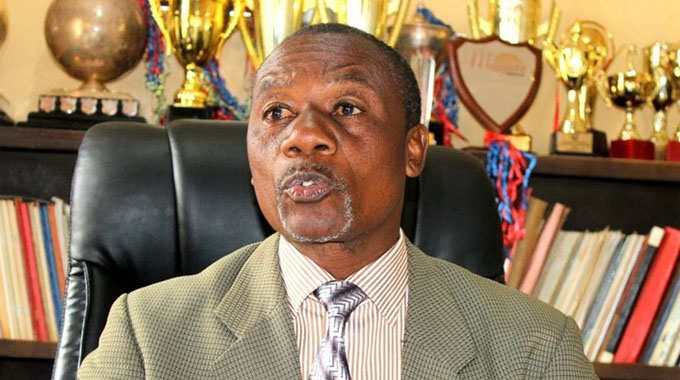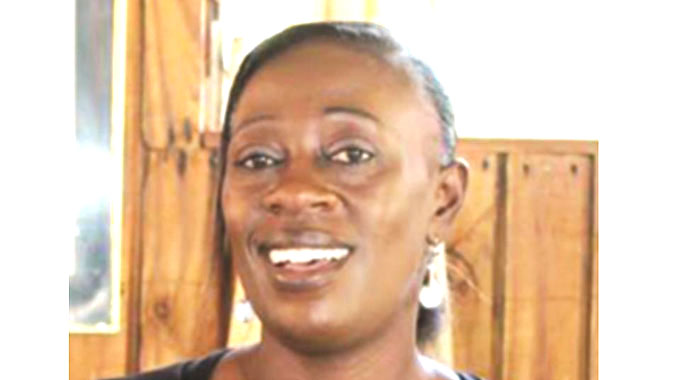ED calls for swift action on climate change

Climate Story Jeffrey Gogo
President Emmerson Mnangagwa has declared that climate change “respects no borders” and called on world governments to act with speed to prevent the potential dangerous impacts of the science, especially on the developing world.
“Climate change presents a threat to all of humanity and its impact respects no borders,” President Mnangagwa told world leaders attending the UN General Assembly in New York, US, on September 26.
In his debut speech at the global conference, President Mnangagwa said: “We, therefore, call for collective action and responsibility on the matter.”
Zimbabwe faces some of the greatest risks from climate change. Its agro-based economy is often at the mercy of climate-linked extreme events such as drought, flooding and tropical cyclones, all of which have increased in intensity and frequency in recent decades.
In 2015, the country committed to work towards curbing climate change under the Paris Agreement. Zimbabwe said it will cut energy-related greenhouse gases emissions by about 33 percent by 2030, without relenting on economic development.
Zimbabwe’s emissions reductions are conditional on financial and technological support from industrialised countries, the giant emitters historically responsible for all the world’s existing climate change problems.
“As a developing country, we seek support in the areas of adaptation, mitigation, technology, finance and capacity building as envisaged in the Paris Agreement,” President Mnangagwa appealed, at the UN meeting.
According to its climate plan under the Paris accord, the country says it will need more than $55 billion, broken into two tranches, to achieve its mitigation goals in the decade to 2030, covering gases carbon dioxide, methane and nitrous oxide, the mischievous trio.
That figure does not include the $35 billion needed for adaptation, mainly in agriculture, with 23 percent coming through domestic and development agencies’ funding, and the rest through international aid.
In total, implementing Zimbabwe’s climate plan will cost $90 billion over a period of 10 years until 2030, the period when a new international climate agreement is expected to come into force.
Much of the mitigation will occur in the energy sector, which accounts for 49 percent of national emissions, recorded three years ago at 26 700 gigatonnes of carbon dioxide equivalent (GtCO2e), or an invisible 0,5 percent of world emissions.
Each gigatonne is equal to 1 billion metric tonnes.
Specifically, Zimbabwe targets to avoid a total 17 300 GtCO2e by 2030 through higher thresholds for ethanol blending, boosting solar water heating and increasing the share of hydro-power in the national energy mix.
Combined with enhanced energy efficiency and the refurbishment and electrification of the dilapidated rail network, the country will need the Western industrialised states, under UN mechanisms, to deliver $7,2 billion to achieve the targeted quantified cuts in the first tranche.
Other unquantified mitigation contributions are in coal-bed methane, off-grid solar, REDD+, waste management, improving efficiency and changing the structure of the transport industry and introducing sustainable energies in tobacco curing
President Mnangagwa’s speech comes just two weeks ahead of the release of a special report by the UN expert panel on climate change on October 8.
The report, which reviews the implications of a 1,5°C warmer world, is expected to show the inadequacy of existing global pledges under the Paris Agreement.
It will show the scale of action that is required to prevent global temperatures from tipping over and above a point that risks making the planet unlivable, at least by the end of this century. Current plans of action under Paris are only good enough for a 2,7C warming, a threshold that scientists say would be catastrophic for humanity, particularly for those in Africa and elsewhere in the developing world.
Back home, President Mnangagwa’s administration has demonstrated a willingness to curb climate change, even as global talks on finance and a rulebook necessary for the implementation of the Paris Agreement have progressed at a very slow pace, so slow that they risk missing key deadlines for reaching agreement on important issues.
As we have illustrated on these pages in the recent past, until last year, the environment and climate portfolio had suffered some of the deepest cuts in budgetary allocations. As a percentage of total Government expenditure, spending for the portfolio has consistently declined, falling to one percent in 2017 from 2,5 percent in 2012.
President Mnangagwa doubled public spending for the sector to about $85 million since he came to power in November.
This is no doubt a very minute figure relative to the actual amount of money needed to achieve solid progress.
But we have also seen new renewable energy projects (Kariba hydropower 300MW) coming online in the last few months, and several others of generation capacity running into a few hundred megawatts in the pipeline. Local banks have so far mobilised or are in the process of raising more than $220 million for clean, on-grid power projects, which is a positive development for Zimbabwe’s climate change sector.
God is faithful.











Comments